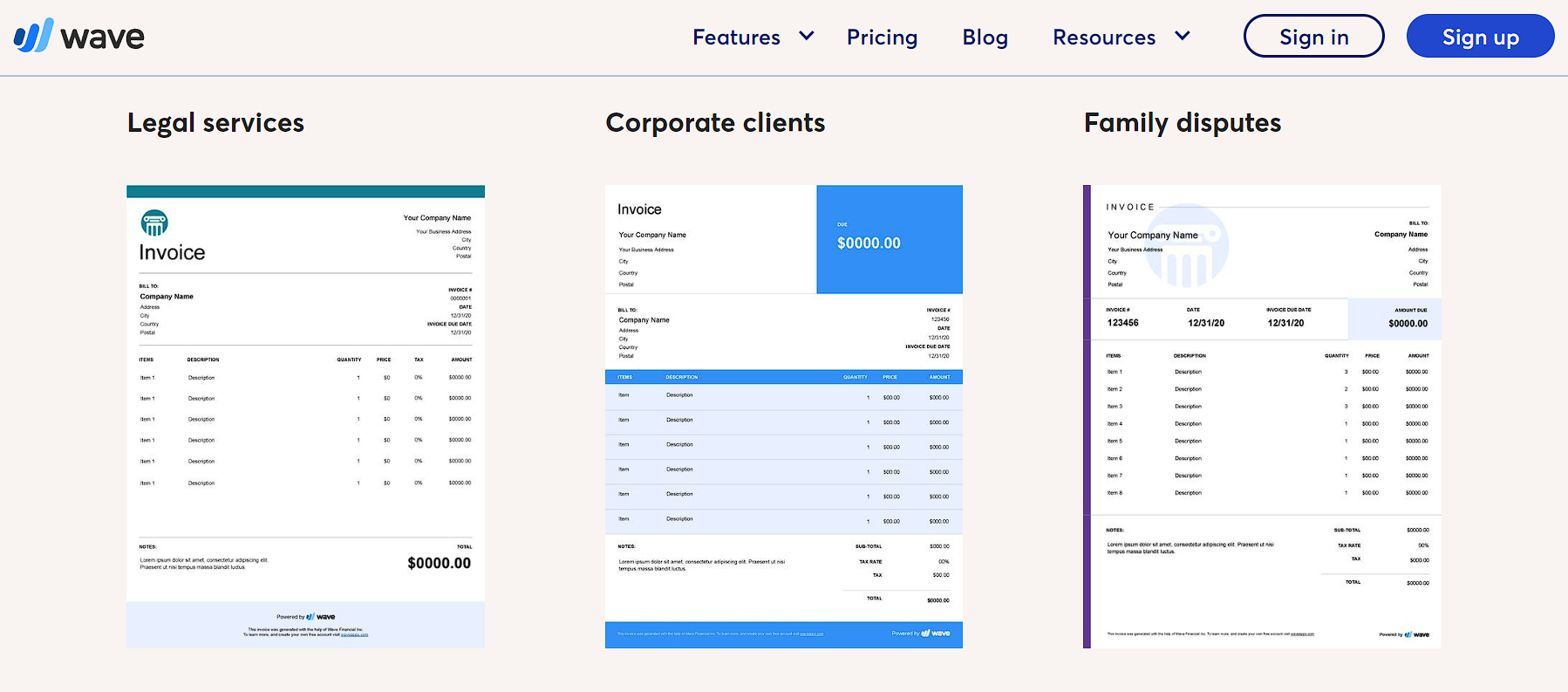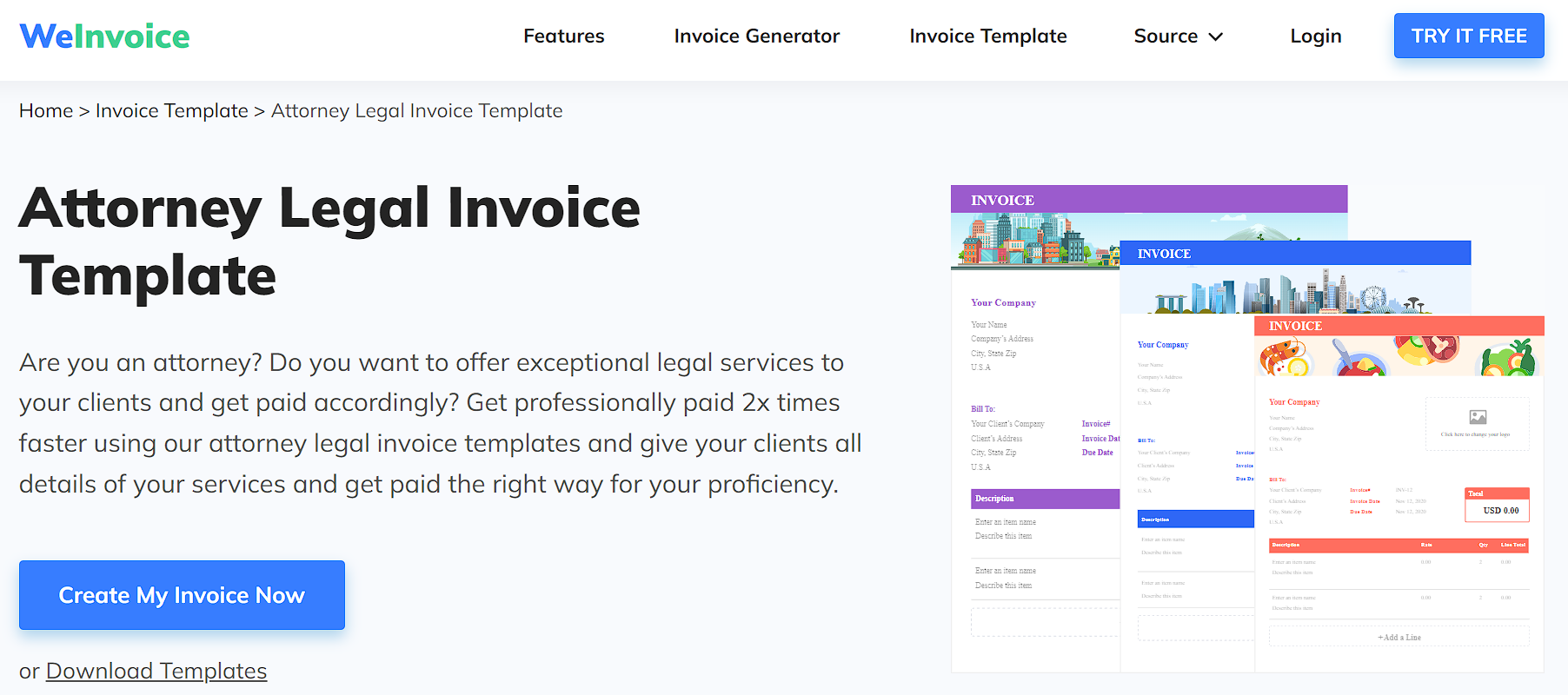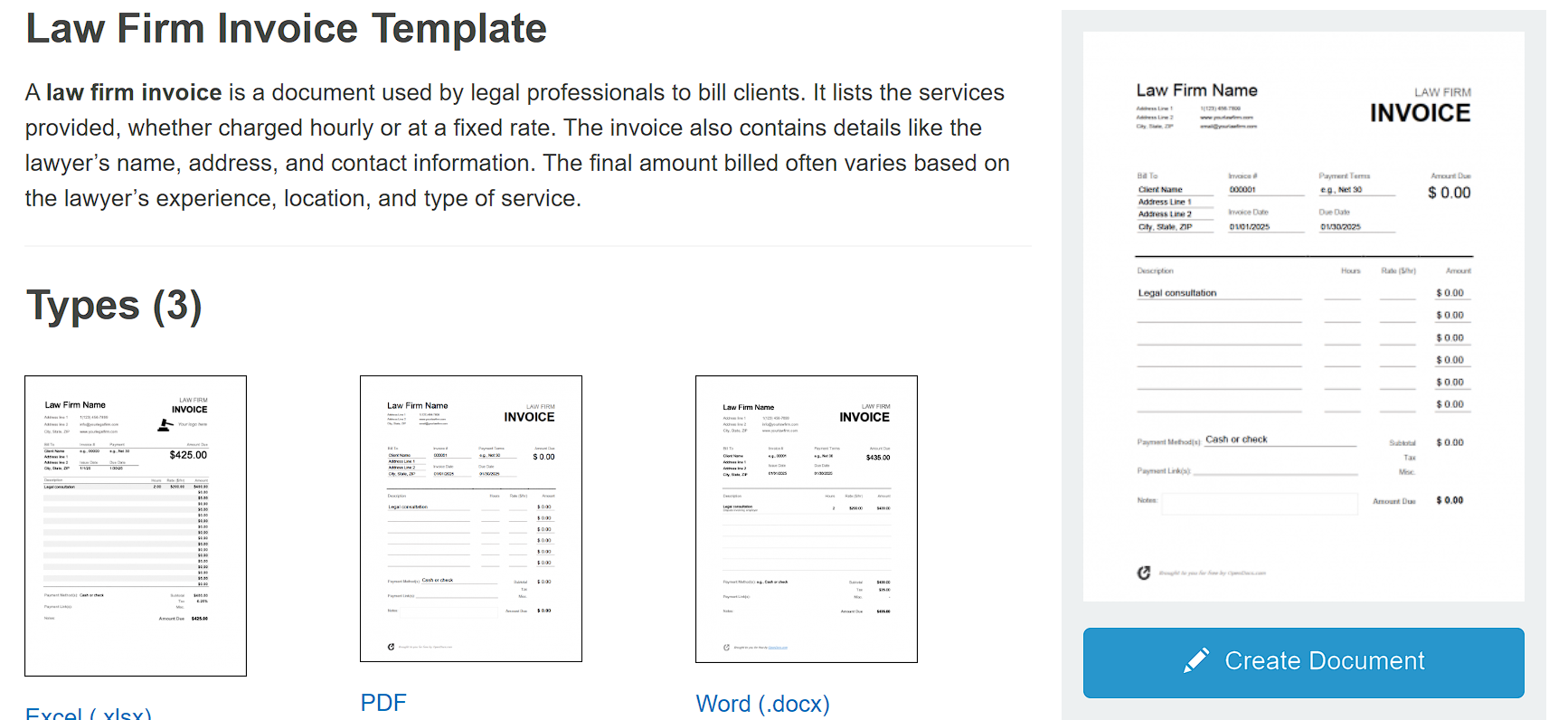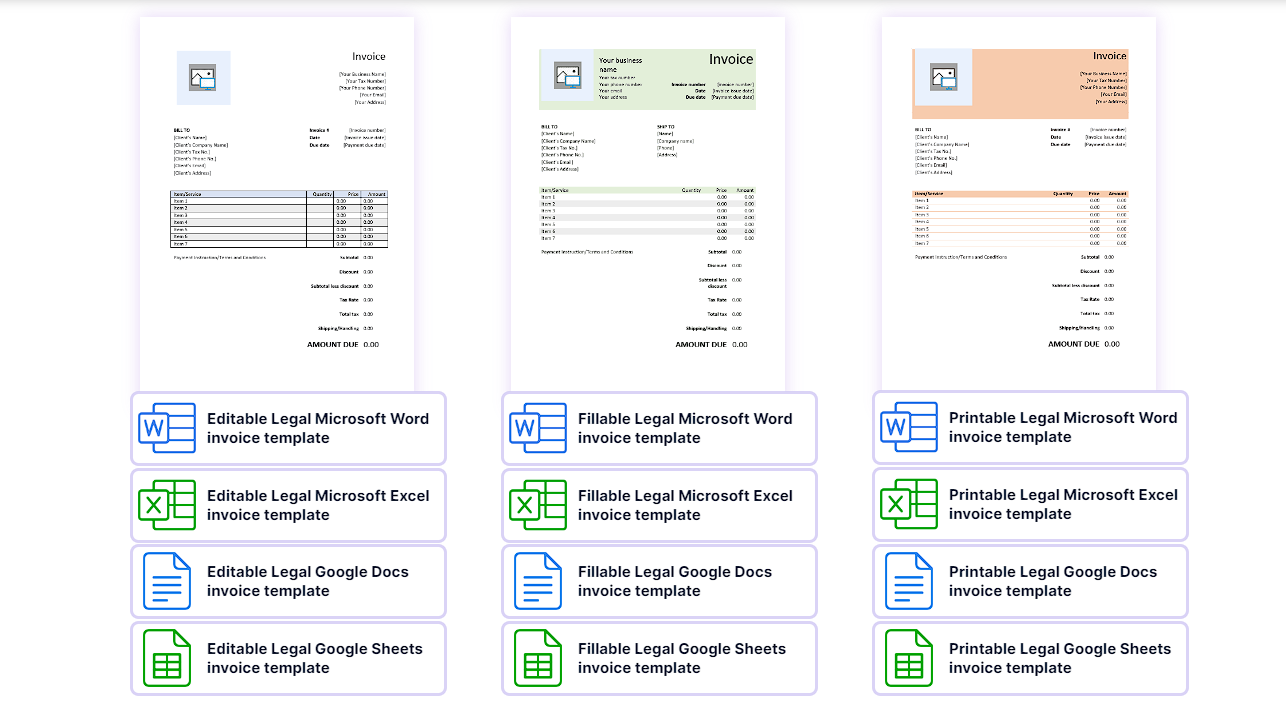In essence, law firm invoice templates serve as more than just financial documents; they are emblematic of a law firm’s commitment to excellence and client satisfaction. With their seamless blend of functionality and sophistication, these templates exemplify the professionalism and expertise that define the legal profession.
Attorney Hourly Billing Template:
Crafted with precision and tailored to the nuanced needs of legal professionals, the attorney hourly billing template stands as a testament to meticulousness and professionalism. This template streamlines the invoicing process, delineating billable hours with clarity and coherence. With its structured format and comprehensive design, it empowers attorneys to accurately document their time and ensure transparency in billing practices.
Attorney Hourly Billing Spreadsheet Template:
In the realm of legal practice, organization and accuracy are paramount, and the attorney hourly billing spreadsheet template exemplifies these principles. Through its systematic layout and intuitive interface, this template offers a comprehensive solution for tracking billable hours and generating invoices with ease. From detailed time entries to customizable formulas, it provides attorneys with the tools they need to effectively manage their billing processes.
Hourly Billing for Attorneys Template:
Navigating the complexities of hourly billing requires precision and efficiency, qualities embodied by the hourly billing for attorneys template. Designed to meet the unique requirements of legal professionals, this template facilitates the seamless documentation of billable hours and the generation of accurate invoices. By incorporating customizable fields and intuitive formatting, it empowers attorneys to streamline their billing practices and optimize their workflow.
Law Firm Invoice Template:
As the cornerstone of financial transactions in the legal sphere, the law firm invoice template embodies professionalism and accountability. Tailored to the specific needs of law firms, this template offers a comprehensive framework for documenting services rendered and facilitating timely payments. From detailed descriptions of legal work to clear breakdowns of costs, it ensures transparency and clarity in the invoicing process.

Attorney Legal Invoice Template


A law firm invoice serves as a vital document in the realm of legal services, enabling legal professionals to bill clients for their expertise and assistance. It meticulously outlines the services rendered, whether billed on an hourly basis or at a predetermined rate, providing clients with a clear breakdown of the work performed. Additionally, the invoice includes essential details such as the lawyer’s name, contact information, and address, fostering transparency and facilitating communication between the legal practitioner and the client. The total amount billed typically reflects various factors, including the lawyer’s level of experience, geographical location, and the nature of the services provided, ensuring a fair and accurate representation of the work rendered.
What Should an Attorney Invoice Template Include?
Crafting an effective attorney invoice template requires attention to detail and a keen understanding of legal billing practices. Key elements to include are comprehensive descriptions of services rendered, clear breakdowns of costs, and precise billing rates. Additionally, it’s essential to incorporate firm details, client information, and payment terms to ensure clarity and accuracy in the invoicing process.
Create a Clear Legal Contract: In the realm of legal transactions, clarity is paramount, and crafting a clear legal contract is essential to mitigating misunderstandings and disputes. A well-drafted contract should outline the rights and obligations of all parties involved, specify terms and conditions, and provide mechanisms for dispute resolution. By ensuring transparency and precision in language, legal contracts lay the foundation for mutually beneficial agreements and foster trust among stakeholders.
Simplify Payments: Streamlining the payment process is crucial for fostering positive client experiences and maintaining efficient business operations. Implementing user-friendly payment methods, such as online payment portals or automated billing systems, can simplify the payment process and reduce friction for clients. By offering convenient payment options and clear instructions, law firms can enhance client satisfaction and improve cash flow.
Be as Transparent as Possible: Transparency is the cornerstone of trust in any professional relationship, and it’s especially critical in the legal realm. Law firms should strive to be as transparent as possible in their communications, billing practices, and service delivery. This includes providing clear explanations of legal fees, disclosing potential conflicts of interest, and maintaining open lines of communication with clients. By fostering transparency, law firms can build strong relationships with clients and uphold the highest ethical standards.
Send Invoice Reminders: Invoicing is a critical aspect of running a successful law practice, but it’s easy for invoices to slip through the cracks amid busy schedules and competing priorities. Sending invoice reminders can help ensure timely payment and minimize outstanding balances. Whether through automated email reminders or personal follow-up calls, proactive communication about invoice due dates and payment deadlines can facilitate prompt payments and maintain positive client relationships.
Use Language Your Clients Are Likely to Understand: Effective communication is essential in the legal profession, and using language that clients can easily understand is paramount to ensuring clarity and comprehension. Avoiding legal jargon and technical terminology whenever possible and opting for plain language can help bridge the gap between legal concepts and client comprehension. By communicating in a clear and accessible manner, law firms can empower clients to make informed decisions and navigate legal processes with confidence.
FAQs about Law Firm Invoice Templates:
1. Why are law firm invoice templates important?
Law firm invoice templates serve as essential tools for documenting legal services provided to clients and facilitating payment transactions. By providing a standardized format for invoicing, these templates ensure clarity, accuracy, and consistency in billing practices.
2. What should be included in a law firm invoice template?
A comprehensive law firm invoice template should include essential details such as the law firm’s name, address, and contact information, client details, descriptions of services rendered, billing rates, hours worked, subtotal for services, taxes (if applicable), total amount due, and payment terms.
3. Can law firm invoice templates be customized?
Yes, law firm invoice templates can be customized to suit the specific needs and branding preferences of individual law firms. Customization options may include adding logos, adjusting formatting and layout, and incorporating firm-specific language or disclaimers.
4. How do law firm invoice templates help with transparency?
Law firm invoice templates promote transparency by providing clients with clear and detailed breakdowns of services rendered and associated costs. By offering transparency in billing practices, law firms build trust with clients and demonstrate accountability in their financial transactions.
5. Are there any best practices for using law firm invoice templates?
Some best practices for using law firm invoice templates include numbering invoices for easy tracking, providing detailed descriptions of services rendered, setting clear payment terms and deadlines, sending invoices promptly, and following up with clients on outstanding payments when necessary.
6. Can law firm invoice templates be integrated with billing software?
Yes, many law firm invoice templates are compatible with billing software platforms, allowing for seamless integration and automation of invoicing processes. Integrating invoice templates with billing software can help streamline administrative tasks, improve efficiency, and reduce errors in billing practices.





